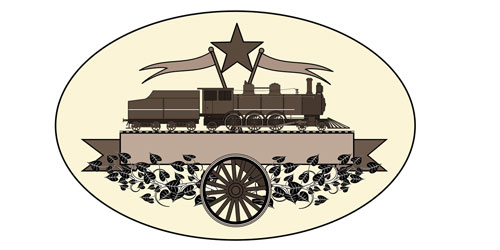《论语诠解英文版》——Chapter XVII"阳货" (Yang Huo)
[17- 1] 阳货欲见孔子, 孔子不见, 归孔子豚。
孔子时其亡也,而往拜之,遇诸涂。谓孔子曰:”来!予与尔言。"曰: “怀其宝而迷其邦,可谓仁乎?"曰: “不可。” “好从事而亟失时, 可谓知乎?”曰: “不可。” “日月逝矣!岁不我与!“孔子曰: “诺, 吾将仕矣!”
17.1 Yang Huo wanted to have Confucius come and see him but Confucius did not want to meet him. So, Yang Huo sent Confucius a cooked piglet as a present. Confucius went to thank Yang Huo when he was not at home. However, he met Yang Huo on the way. "Come, I would like to talk with you," Yang Huo said to Confucius. "Can he be regarded as a man of virtue, who is learned yet hides himself away from government, leaving his country to chaos?" "Not at all," Yang Huo answered his own question. He then continued, "Can he be regarded as wise, who wishes to engage in government yet repeatedly miss es the opportunity to do so?" "Not at all," Yang Huo again answered his own question. Finally, Yang Huo persuaded Confucius, saying "Time is flying by, it does not wait for you." Confucius said, "OK, I will take a governmental position.
[Comment] "阳货 ya ng huo" refers to "阳虎 ya ng hu," who was a re tainer governor in the powerful aristocratic family of Jisun Shi in the State of Lu. " 归 g ui'' means "to present a gift." "时 s h f" is, in this context, used interchangeably with " 待 dai" to mean "to wait for an opportunity." "涂 tu" is used interchangeably with "途 tu" to mean "path, way" and "亟 ql" connotes "several times."
[Reading] As said before, because of Yang Huo's degraded moral character, Confucius disliked and, hence, did not want to associate with him. However, the rites of propriety required that he pay a return visit to thank Yang Huo for the cooked piglet present. Feeling uncomfortable, Confucius waited until he was certain Yang Huo was not at home and then made his trip. Unex pectedly, he ran into Yang Huo on the way. When pressed by Yang Huo as to why he refused to serve the country, Confucius finally indicated that he would take a governmental position. From the conversation, we can see that Confucius refused to associate with people he did not like because of their devious actions. However, when it came to serving the country, he had to engage himself in the government, even though that meant he would have to be surrounded by officials with whom he did not want to associate. This is because he had a loftier aspiration to fulfill, that is, to restore social order by performing the Zhou rites of propriety. Section 5 of this chapter presents a typical case. Gongshan Furao and Yang Huo were both governors in the po litically influential aristocratic family of Jisun Shi. Later they stood together in a rebellion in Bi against Jishi and invited the Master to visit him, which the Master accepted. When Zilu, one of the major disciples of Confucius, learned this, he was displeased and questioned his Master, "Indeed, if there is no place to go, then do not go anywhere. Why do you have to visit the rebellious Gongshan Furao?" The Master said, "Do you not think the person who has invited me to go is just for nothing? If someone plans to employ me, at least I would not turn that place into a society in which propriety and music were co 盯 upted like Eastern Zhou."
[17- 2] 子曰: “性相近也,习相远也。"
17.2 The Master said, "Men are alike by nature, but learning of a later and subsequent time has made them increasingly different from each other."
[Reading] Confucius emphasized the importance of education in shaping one's personality and advancing his moral development. He believed that when men were born they were "all alike by nature" and were just like a blank sheet of paper. It is "learning of a later and subsequent time" that has made people different from each other. That is why he paid so much atten tion to education and defined it as a very important means to train moral character. He was the first person in Chinese history to initiate private edu cation and to open the door of education to all. He devoted his whole life almost exclusively to these endeavors.
[17- 3] 子曰: “唯上知与下愚不移。"
17.3 The Master said, "Only the very wisest and the foolish of the lowest class would not change by learning of a later and subsequent time."
[Reading] This passage would make sense only when it is read against the context provided in the preceding section. While people can change and are made different by "learning of a later and subsequent time," Confucius also believed that certain people, such as geniuses-the wisest of the wise, and the most foolish of the foolish cannot change through education.
[17- 4] 子之武城, 闻弦歌之声。夫子莞尔而笑, 曰: "割鸡焉用牛刀?”子游对曰: “昔者偃也闻诸夫子曰: '君子学道则爱人,小人学道则易使也。'"子曰: “二三子!偃之言是也。前言戏之耳!”
17.4 The Master went to Wucheng. There he heard the music of stringed instm ments and the singing of "Odes." Smiling pleasantly, the Master said, "Why would one use an ox knife to kill a chicken?" Ziyou answered, saying "Sir, I heard you say before that'If the ruler learns the rules of propriety and mu sic, he would be benevolent to his people. If the common folks learn these things, they would be easier to rule.'"The Master said, "My students, what Ziyou said is right. What I mentioned before was only meant as a joke."
[Com ment] " 莞尔 w如 'e r" means "to smile pleasantly."" 子游 zT y6u" was a disciple of Confucius. His surname was " 言 y6 n," and his given name ' 偃沁n ." He impressed his mentor with his "literary talent." Here, "君子Junzi" and "小人xiaoren" refer to "the ruler" and "common folks."
[Reading] This section shows that Confucius was a man of humility and modesty. When he realized that he had made an inappropriate remark and was reminded by his own student, instead of trying to cover it up, he ac knowledged his mistake and apologized for it. Furthermore, he praised Ziyou, in front of all his disciples, for correcting him.
[17- 5] 公山弗扰以费畔, 召, 子欲往。子路不说 , 曰: "末之也己,何必公山氏之之也?"曰: “夫召我者,而岂徒哉?如有用我者,吾其为东周乎!”
17.5 Gongshan Furao stood in a rebellion in Bi against Jishi and invited the Master to visit him, which the Master accepted. Displeased, Zilu said to the Master, "Indeed, if there is no place to go, then do not go anywhere. Why do you have to visit the rebellious Gongshan Furao?" The Master said, "Do you not think the person who has invited me to go is just for nothing? If some one plans to employ me, at least I would not tum that place into a society in which propriety and music were corrupted like Eastern Zhou."
[Comment] "费 bl" is the name of a place, which was the fiefdom of " 季孙氏 jl sun sh1," one of the three powerful aristocratic families in the State of Lu. It is located to the northwest of today' s "费县 Fei County" in Shandong Province. "说 yu扩 is used interchangeably with "悦 yue ." The second "之zhl'' in "何必公山氏之之也 he b1 gong shan shl zhT zhT ye" is used as a verb to mean "去 q u" (to go). "召我者 zha o w6 zh色" refers to "公山弗扰gong shan fu rao."
[Reading] This passage is a follow-up on Section 1 of this chapter.
[17- 6] 子张问仁千孔子。孔子曰:“能 行五者千天下为仁矣。”“ 请问之。"曰: "恭、宽、信、敏、惠。恭则不侮,宽则得众,信则人任焉, 敏则有功,惠则足以使人。"
17.6 Zizhang asked the Master about what constitutes a man of true virtue. The Master said, "If a man can do these five things, then he is a man of true virtue under Heaven." Zizhang asked, "Could you elaborate on them?" The Master said, "Courtesy, forbearance, trustworthiness, diligence, and benevo lence. If a man is courteous, he will not be disrespected. If he is forbearing, he will win people's heart. If he is trustworthy, people will believe him and he will then be employed for important affairs. If he is diligent, he will ac complish much. If he is benevolent, he will rule easily and therefore enact good government."
[Reading] In this section, Confucius discussed the five most important ele ments of "{ 二 Ren": "Courtesy, forbearance, trustworthiness, diligence, and benevolence." And he urged his disciples to advance themselves in that direction.
[17- 7] 佛胖召, 子欲往。子路曰: “昔者由也闻诸夫子曰: '亲千其身为不善者,君子不入也。'佛胖以中牟畔,子之往也,如之何?” 子曰: “然,有是言也。不曰坚乎,磨而不磷;不曰白乎,涅而不细。 吾岂抱瓜也哉?焉能系而不食?”
17.7 Bi Xi, in rebellion against the State of Jin, invited the Master to visit him, which the Master accepted. Zilu said, "Sir, I heard you said before that 'The noble man would never associate with anyone who was doing evil.'Bi Xi is now in possession of Zhongmu, staging a rebellion against the State of Jin, yet you plan to visit him. Why so?" The Master said, "Yes, I said these words. But it is said that a really hard substance, no matter how ground, can not be turned thin. It is also said that a pure white substance, no matter how dyed in black, cannot be turned dark. Am I just a gourd to be hung up on the vine but not to be eaten?"
[Comment] "佛胖bl xT''was a retainer governor for the noble family of " 范氏 fa n sh]" who was a minister in the State of Jin. " 中牟 zho ng m6u" was the name of a place in Northern Jin. " 磷 If n" means "thin" while "涅 ni扩refers to a kind of dark dye. "细 zT'' means "black" and "抱 p6o " is a kind of melon, belonging to the gourd family.
[Reading] This section bears similarity to Section 5 of this chapter. In re sponse to Zilu's question about why he decided to visit the rebellious Bi Xi at the latter's invitation, Confucius explained that the learning and knowl edge he had obtained throughout his life was not to be decorative pieces on show. Rather, they should be put into practice. He would use this rare oppor tunity to initiate changes in Zhongmu to restore the Zhou rites of propriety in any way he could.
[17- 8] 子 曰:”由 也 ,女 闻 六 言 六 蔽 矣 乎? ”对 曰:“未 也 。" 曰:“居!吾语女。好仁不好学,其蔽也愚。好知不好学,其蔽也荡。好信不好学, 其蔽也贼。好直不好学,其蔽也绞。好勇不好学,其蔽也乱。好刚不好学, 其蔽也狂。"
17.8 The Master said, "Zhong You, have you heard that a man of six virtues may be bewildered and beclouded if he does not study?" Zilu answered, "No." The Master said, "Sit down. Let me tell you why. If you love be nevolence but do not like to study, you will be vulnerable to deception. If you love wisdom but do not like to study, you will be vulnerable to sensual indulgences. If you love trustworthiness but do not like to study, you will be vulnerable to harm. If you love directness but do not like to study, you will become a man of harsh words. If you love bravery but do not like to study, you will be rebellious. If you love resoluteness but do not like to study, you will be audacious."
[Com ment] "蔽 bl" is used interchangeably with "弊 bl" to mean "distortion." "贼砖i" means "to harm" and "绞 jia o " connotes "harsh words."
[Reading] One of the major disciples of Confucius, Zilu (his real name was Zhong You) possessed a notably idiosyncratic character: He was resolute, resourceful, faithful, filial, and courageous (if not entirely recklessly bold). Despite/Because of these qualities, Confucius did not seem to favor this critical-thinking disciple. In this passage Confucius warned Zilu that a man of six virtues-benevolence, wisdom, trustworthiness, directness, bravery, and resoluteness-would encounter backlash if he does not study and learn. This is exactly where Zilu's problems lay.
[17- 9] 子曰: “小子何莫学夫《诗》? 《诗》可以兴,可以观, 可以群,可以怨。迩之事父,远之事君;多识千鸟兽草木之名。"
17.9 The Master said, "Youngmen, why do you not study the Classic of Odes? The Odes can inspire you, make you contemplative, promote friend ship, and teach you how to criticize. From the Odes, you learn how to serve your parents and later how to serve the prince. Additionally, it helps you learn the names of birds, beasts, plants and trees."
[Comment] "迩 e r" indicates that something is "close, nearby."
[Reading] One of the classics that Confucius compiled himself was the Classic of Odes. He had a special feeling for the Odes because, in his view, it helps "inspire you, make you contemplative, promote friendship, and teach you how to criticize." Simply put, the Odes enables one to advance his moral development. If one cannot fully appreciate the poetic beauty of the Odes, Confucius argued, in his typical sense of humor, it could at least help one "learn the names of birds, beasts, plants and trees."
[17- 10] 子谓伯鱼曰:“女 为《周南》、《召南》矣乎?人而不为《周 南》、 《召南》,其犹正墙面而立也与?”
17.10 The Master asked his son, Boyu, "Have you studied the "Zhou Nan" and "Shao Nan" chapters of the Odes? Those who have not even learned these two chapters are like men standing in front of a wall, staring into it aimlessly."
[Comment] "伯鱼 b6 yu" was the son of Confucius. His given name was "鲤IT," with a courtesy name of "伯鱼 b6 yu." " 周南 zh6 u nan" and " 召南s hoo nan" are the first two parts of the first major division " 十五国风shf wu gu6 feng" in the Classic of Odes.
[Reading] This passage echoes the preceding one by further arguing that if one does not learn the Odes, particularly the two chapters "周南 Zhou Nan" and "召南 Shao Nan" of the first major division " 十五国风 Shiwu Guofeng", one would indeed appear hopelessly stupid and"uncivilized","like men standing in front of a wall, staring at it aimlessly." It is interesting to note that Confucius said the same thing to his only son Boyu, who studied with him like his other disciples. Boyu never received any indi vidual tutoring from his father, for which Confucius was praised by his disci ples, as he was "impartial toward his own son." (Section 13, Chapter XVI) [Chen Gang asked Boyu, "Did you get special instruction from your father?" Boyu replied, "No. Once he was alone in the hall, and when I was quickly passing him, he asked,'Have you learned the Classic of Odes?'I told him 'Not yet.'He said,'If you do not learn the Classic of Odes, you will not be able to converse appropriately.'So I retired and studied it. On another day, he was again alone in the hall. As I was quickly passing him, he said,'Have you learned the Record of Rites?'I told him'Not yet.'He said,'If you do not learn the Record of Rites, you will not be able to understand how to establish yourself.'So I retired and studied it. These are the only two things I have heard from him." Chen Gang left and said delightedly, "I only asked one question but harvested three things. I have heard the Classic of Odes, the Record of Rites, and above all, I have learned that the nobleman is impartial toward his own son."]
[17- 11] 子曰:“ 礼云礼云,玉帛云乎哉!乐云乐云,锺鼓云乎哉!”
17.11 The Master said, "By the rules of propriety, do we simply refer to jew elry and silk? By music, do we simply refer to drums and bells?"
[Reading] Objects such as jewelry and silk used in ceremonies and rituals, and the drums and bells used in playing music as part of "礼 Li" (the rites of propriety) should not be regarded, as Confucius argued, simply as things in themselves. Instead, they are part of a large concept called the rules of pro priety, ritual, and customs. Rather than mere ceremony or sacrificial ritual, “ 礼 Li" plays a critical role in regulating people's behavior both on social and personal levels. It helps determine whether people's actions are in ac cordance with the code of the virtuous and the righteous. More importantly, "1L Li" is an important social mechanism by which rulers govern the people and maintain the order of "All under Heaven."
[17- 12] 子曰: “ 色厉而内茬, 譬诸小人,其 犹穿窗之盗也与?”
17.12 The Master said, "Those who look tough outside but are weak inside are like thieves who dig holes in the wall or climb over the wall."
[Comment] "在 re n" means "weak" while "穿裔c hua n yu" connotes "to dig a hole in the ground."
[Reading] Confucius believed that a noble man of true virtue is firm and forceful both inside and outside. They are determined, resolute, resourceful, erudite, wise, courageous, humble, and amicable. Confucius held in con tempt those who pretended to be strong and tough, yet were weak and inde cisive inside.
[17- 13] 子曰: “乡原,德之贼也。"
12.13 The Master said, "Those who are praised as good people by all villag ers indiscriminately are problems for the ethical."
[Com ment] " 乡原xia ng yuan" refers to those who are regarded by all vil lagers as good people.
[Reading] This passage echoes what Confucius argued in Section 28 of Chapter XV: "If everyone dislikes him, it is imperative to investigate the situation. If everyone loves him, it is also imperative to investigate the situa tion." Confucius believed that a "君子J unz i" does not go with the flow. He is well-known for his critical thinking ability and for his discerning judg- ment. For a "君子J unz i", If you love wisdom but do not like to study, you will be vulnerable to indulgence in sensual pleasure. It must be a fallacy that a man of morality can be liked by all people indiscriminately, unless he is a man without integrity. That is why the Master said, "Those who are praised as good people by all villagers indiscriminately are problems for the ethi cal."
[17- 14] 子曰: “道听而途说,德之弃也!”
17.14 The Master said, "Hearsay and gossip should be cast away by men of virtue."
[17- 15] 子曰: "鄙夫可与事君也与哉?其未得之也,患得之;既得之,患失之。苟患失之,无所不至矣。"
17.15 The Master said, "One cannot serve his prince together with mean minded fellows, can he? When these mean creatures have not obtained what they aim for, they are desperate to get it. When they have obtained it, they are apprehensive lest they may lose it. As such, there is nothing they would not do if it is in their capability."
[Reading] Confucius advised his disciples against having as colleagues mean-minded people, as they were desperate and harmful. In Chapter I, Confucius emphasized the importance of not making friends with men who are not of one's own moral caliber: "无友不如己者 WU you bu ru jT zh色” Elsewhere, Confucius also urged his disciples, "When you reside in a state, you should enter into deferential service with the worthiest among ministeri al-level officials and befriend the most virtuous among its learned scholars." (Section 10, Chapter XV)
[17- 16] 子曰: “ 古者民有三疾, 今也或是之亡也。古之狂也肆, 今之狂也荡;古之矜也廉,今之矜也忿戾;古之愚也直,今之愚也诈 而已矣。"
17.16 The Master said, "The ancients suffered from three faults, which peo ple of today do not even have the luxury to have. Instead, they have three more serious problems. The ancients, while audacious, defied only conven tions. But people of the present-day, while audacious, are licentious and dissolute. The ancients were aloof because they were too sharp-minded to be offended. People of the present-day are aloof merely because they are pre posterous and ludicrous. The ancients, while simple-minded, were straight forward. People of the present-day, while simple-minded, seek to cheat and beguile others."
[Com ment] " 疾 jf" means " 病 b1ng ." Here, in a broader sense, it implies "shortcomings." Originally," 廉 li6 n" referred to the sharpness of an object. Here, it implies, metaphorically, "something that cannot be touched." " 忿 戾伶n 11" connotes "preposterous, unreasonable."
[Reading] In this section, Confucius compared the three faults the ancients had with those of the modem-day people. According to Confucius, while ancients may suffer from audacity, aloofness, and straightforwardness, these are but personality traits. The three common problems the present-day peo ple suffer from, however, are morality issues: being licentious and dissolute; being preposterous and ludicrous; and being cheating and beguiling, which are manifestations of moral degradation and unethical behavior rampant in his times as a result of the disappearance of the Zhou rites of propriety and ethical code.
[17- 17] 子曰: “巧 言 令 色, 鲜矣仁。"
17.17 The Master said, "True virtue has nothing to do with adulatory words and a sycophantic appearance."
[Com ment] " 令 ll ng" means "fine" while " 鲜 xia n" connotes "rare." 芷4
[Reading] This passage is a repletion of Section 3 of Chapter I.
[17- 18] 子曰: “恶紫之夺朱也,恶郑声之乱雅乐也,恶利口之覆邦家者。"
17.18 The Master said, "What I dislike most is to allow purple to replace vermillion and to allow the licentious music of Zheng to disturb the clas sic music of the fine Ya. I dislike those who overthrew kingdoms with their sophistic words and adulatory speeches."
[Comment] "郑声 z陡 ng sheng" describes the "music of the State of Zheng."
[Reading] Confucius was gravely upset by the increasing disappearance of the Zhou rites of propriety and ethical principles of " 君子Junzi" in his time, characterized by moral degradation, transgression of " 礼 Li", violation of social values, infringement of norms, and so on. That is why, in response to Zilu's question, "If the prince of Wei expects you to assist him in governing his state, what would be your top priority?" Confucius said, "I will first rec tify names." He believed that only when names are correct could discourse be smooth and appropriate. In other words, things have to be put back in their proper order so that sociopolitical norms and moral values can be re established.
[17- 19] 子曰:"予 欲无言!” 子贡曰:“子 如不言,则小子 何述焉?” 子曰: “ 天何言哉!四时行焉, 百物生焉, 天何言哉?”
17.19 The Master said, "Indeed, I would prefer not to speak anymore." Zigong said, "Sir, if you do not speak, how shall we, as your students, con vey your ideas to others?" The Master said, "Does Heaven ever speak? Yet all four seasons follow each other and all things grow their way under the sun. Does Heaven ever speak?"
[Reading] This passage is a follow-up on the preceding one in which Con fucius, so frustrated and disappointed by the corrupted society of his times, almost decided not to continue his teaching. This reminds us of Chapter V, in which Confucius complained, "If my doctrines do not work, I shall get upon a raft on the sea and go abroad." He would just leave things to the Way of Heaven. "Does Heaven ever speak? Yet all four seasons follow each other and all things grow their way under the sun. Does Heaven ever speak?"
[17- 20] 擂悲欲见孔子, 孔子辞以疾。将命者出户, 取瑟而歌, 使之闻之。
17.20 Ru Bei intended to visit the Master, but the Master refused to see him by using sickness as an excuse. When the messenger was leaving through the door, the Master took his lute and began to sing loudly for Ru Bei to hear him.
[Com ment] " 擂 悲 ru b 苛 once studied with Confucius about funeral eti quette. " 将命者 jia ng mlng zhe" means "messenger."
[Reading] Here we see an emotional Confucius. He did not like Ru Bei and refused to meet him by pretending he was ill. But, he wanted Ru Bei to know how he felt about him, so he played on his lute after the messenger left.
[17- 21] 宰我问:“ 三年之丧,期已久矣。君子三年不为礼,礼必坏; 三年不为乐, 乐必崩。旧谷既没, 新谷既升, 钻燧改火, 期可巳矣。"
子曰: “食夫稻,衣夫锦,千女安乎?”曰: “安。"
“女安,则为之!夫君子之居丧,食旨不甘,闻乐不乐,居处不安, 故不为也。今女安,则为之!”宰我出。
子曰: ”于 之不仁也!子生三年, 然后免千父母之怀。夫三年之丧, 天下之通丧也。予也有三年之爱千其父母乎?”
17.21 Zai Wo asked the Master, "The three-year mourning period for parents is too long, is it not? If the nobleman does not practice rituals for three years, the rituals will decline. If he does not play music, the music will get rusty. Within the period the old grain will be consumed whereas the new grain will ripen. The wood used to procure fire through rubbing will also already be recycled. Thus, a one-year mourning period should suffice." The Master said, "During the mourning period for your parents, do you feel comfortable with eating delicious food and wearing fine silk?" Zi Wo an swered, "Yes, I do."
The Master said, "If you feel comfortable with these, go ahead and do it. The noble man, during the mourning period, does not enjoy delicious food, nor pleasurable music. He feels edgy if his life becomes comfortable. There fore, he would not do such thing. But if you feel at ease with this, go ahead and do these things."
After Zai Wo retired, the Master said, "Zai Wo is not a man of virtue. A child grows in the caring arms of its parents for at least three years. It is the universal rules of propriety that men should observe a three-year mourning period for parents. Zai Wo was bathed in love for three years in his parents' arms, was he not?"
[Com ment] "宰我zai w6" was a disciple of Confucius. His courtesy name was "予 yu."
[Reading] In his conversation with Zai Wo, one of his disciples, Confucius explained why the mourning period for one's deceased parents needs to be three years. First, this custom was in place long before their time. It was a tradition established by the ancients to show their filial and pious feelings for their parents. Second, Confucius argued that "a child grows in the caring arms of its parents for at least three years." Therefore, the rules of propriety and filial piety require that men should show their gratitude for the blessing their parents provided by observing at least a three-year mourning period. Confucius simply could not understand why Zai Wo, who "was bathed in love for three years in his parents'arms," would want to change the custom. For him, it was no longer a matter of custom; rather, it was more of a moral issue. That is why Confucius called Zai Wo an unvirtuous person.
[17- 22] 子路曰:" 饱食终日,无所用心,难矣哉!不有博奕者乎? 为之,犹贤乎已!”
17.22 The Master said, "It is indeed a shame for those who stuff themselves with food all day, yet do not employ their mind in doing meaningful things! Are there not people who engage in games and chess playing? Doing any of these would be better than doing nothing."
[Comment] " 已 yT" means "to stop doing anything."
[Reading] Confucius had high expectations for his disciples and was dedi- cated to training them to become "君子 Junz i," with all the requisite exem plary qualities. As such, he could not tolerate lethargy, inactivity, idleness, indolence, thoughtlessness, and negligence. For example, in Chapter V, Con fucius was so upset by the indolent Zai Wo, who slept during the daytime, that he sighed, "Rotten wood cannot be carved; walls made of dirty earth cannot be painted by a masonry trowel. What is the use of my scolding Yu (Zai Wo)?" In his typical sense of humor, Confucius said that if indeed Zai Wo could not find anything better to do than just stuff his belly, he may as well learn from those "who engage in games and chess playing. Doing any of these would be better than doing nothing."
[17- 23] 子路曰: “君子尚勇乎?”子曰: “君子义以为上。君子有勇而无义为乱,小人有勇而无义为盗。"
17.23 Zilu asked, "Does the noble man revere bravery?" The Master said, "The noble man venerates the righteous as the most important. If the noble man is courageous but not righteous, he would be rebellious. If the mean man is courageous but not righteous, he would become a bandit."
[Reading] This passage echoes what Confucius discussed with Zilu in Sec tion 8 of this chapter: "If you love bravery but do not like to study, you will be rebellious. If you love resoluteness but do not like to study, you will be audacious." While bravery is an important quality for "君子Junz i ", it is more important that he possess virtue, benevolence, and righteousness. That is why Confucius urged Zilu to study and learn so that he can improve himself.
[17- 24] 子贡曰:“ 君子亦有恶乎?“子曰:“ 有恶: 恶称人之恶者, 恶居下流而汕上者,恶勇而无礼者,恶果敢而窒者。"曰: "赐也亦有恶乎?” “恶傲以为知者,恶不孙以为勇者,恶计以为直者。"
17.24 Zigong asked, "Does the nobleman also have people whom he hates?" The Master said, "Yes. He hates those who enjoy exposing others'faults; those who, though in a low position, besmirch their superiors; those who are courageous yet without decency; those who believe themselves to be reso lute but are opinionated and single-minded." The Master then asked Zigong, "Do you also have people you hate?" Zigong answered, "I hate those who take advantage of others'accomplishments and pretend to be wise. I hate those who are arrogant yet believe themselves to be valorous. I hate those who derive pleasure from exposing others'faults and believe themselves to be of the righteous."
[Com ment] " 恶 wu" means "to dislike," " 汕 s ha n" connotes "to slander," and ' 微 jia o " suggests "to seek, imitate."
[Reading] In this conversation, Confucius shared with Zigong his under- standing of what "君子 Junzi" averts most. Zigong was one of Confucius' favorite disciples, praised by the Master as a precious "embellished sacri ficial utensil." (Section 4, Chapter V) Obviously, they had a lot in common with regard to this topic.
[17- 25] 子曰:“ 唯女子与小人为难养也,近之则不孙,远之则怨。”
17.25 The Master said, "It is not easy to win support and be liked by girls and servants. If you are too close to them, they will lose deference for you. If you ignore and become distant from them, they will be resentful."
[Reading] This passage is probably the most controversial and has earned a bad reputation for Confucius as a male chauvinist. Upon further examination against the context, we may find that here by "girls," Confucius may be re ferring to "concubines," who, if men keep too intimate a relation with them, would become less deferential. Just as the English saying goes, "Familiarity breeds contempt."
[17- 26] 子曰: “年四十而见恶焉,其终也已!”
17.26 The Master said, "If one who reaches the age of forty is still disliked by people, most likely this man is done."
[Com ment] "已yT" means "stop."
[Reading] In this section Confucius urged people to keep improving them selves by learning the rites of propriety and developing their moral charac ter. Only by observing the rules of propriety and performing virtuous deeds can one advance his moral development. Just as Zeng Zi said, "I daily exam ine myself to see: whether I may not have been faithful and dutiful enough when I do things for others; whether I may not have been truthful enough to my words when I interact with my friends; and whether I may not have practiced what my teacher has instructed me to do." (Section 4, Chapter I)












